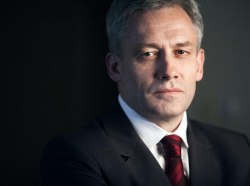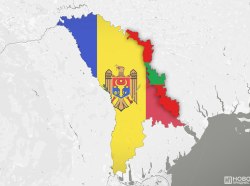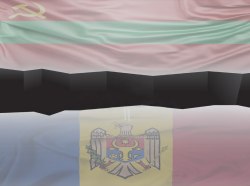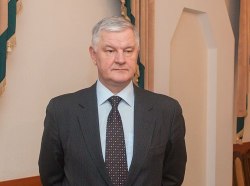The decision of the Constitutional Court of Moldova to limit the presidential powers was a logical step in the internal political process in that country, the Russian political expert Sergey Markedonov believes.
In his article "Moldova's new political intrigue", published on Sputnik-Moldova's website, the pundit reveals the main aspects of the current political crisis in Moldova and points out the errors made by the Socialists and pro-Moscow forces.
According to him, the participants in Moldova's political disputes do not only identify themselves with a party or an influential person but with various forces of a "big European game", while there are no obvious signs of an end to the confrontation between Russia and the West. As a result, domestic instability is a reflection of foreign-policy turbulence, Markedonov notes.
At the same time, the expert says, bringing all Moldovan conflicts to a confrontation between "pro-Russian" Dodon and his "pro-European opponents" means to underestimate the situation.
Not once did Dodon, according to Maekedonov, agree to compromise, which has subsequently created formidable obstacles for him and his supporters.
In particular, these include the support of last year's decision by the Constitutional Court on general presidential elections instead of a possible early parliamentary campaign despite the fact that the scope of presidential powers would not substantially expand.
"Would it not be correct in this situation to wait until the complete failure of the pro-European coalition in order to head people's protest and win parliamentary elections?" asks Markedonov.
Another example cited by the pundit is Dodon's agreement to adopt a mixed electoral system, opening the way to the parliament for oligarchs, having an informal influence in the country, rather than political parties.
"And not necessarily for those expressing pro-Russian sentiments. The facts are just the opposite," underscores the pundit.
With regard to the Pridnestrovian settlement, Markedonov notes there are no fundamental strategic differences on Pridnestrovie between the Socialists and pro-EU parties. Their differences are tactical.
"In this context, attempts to genuinely renew Moldova's political life are extremely limited. And what is more important, not only by the opponents to Kishinev' rapprochement with Moscow but also by the supporters of this policy, let alone their chronic disunity and inability to establish the overall strategy and tactics. The emphasis on the correct rhetoric does not always prove to be efficient," says Markedonov.








